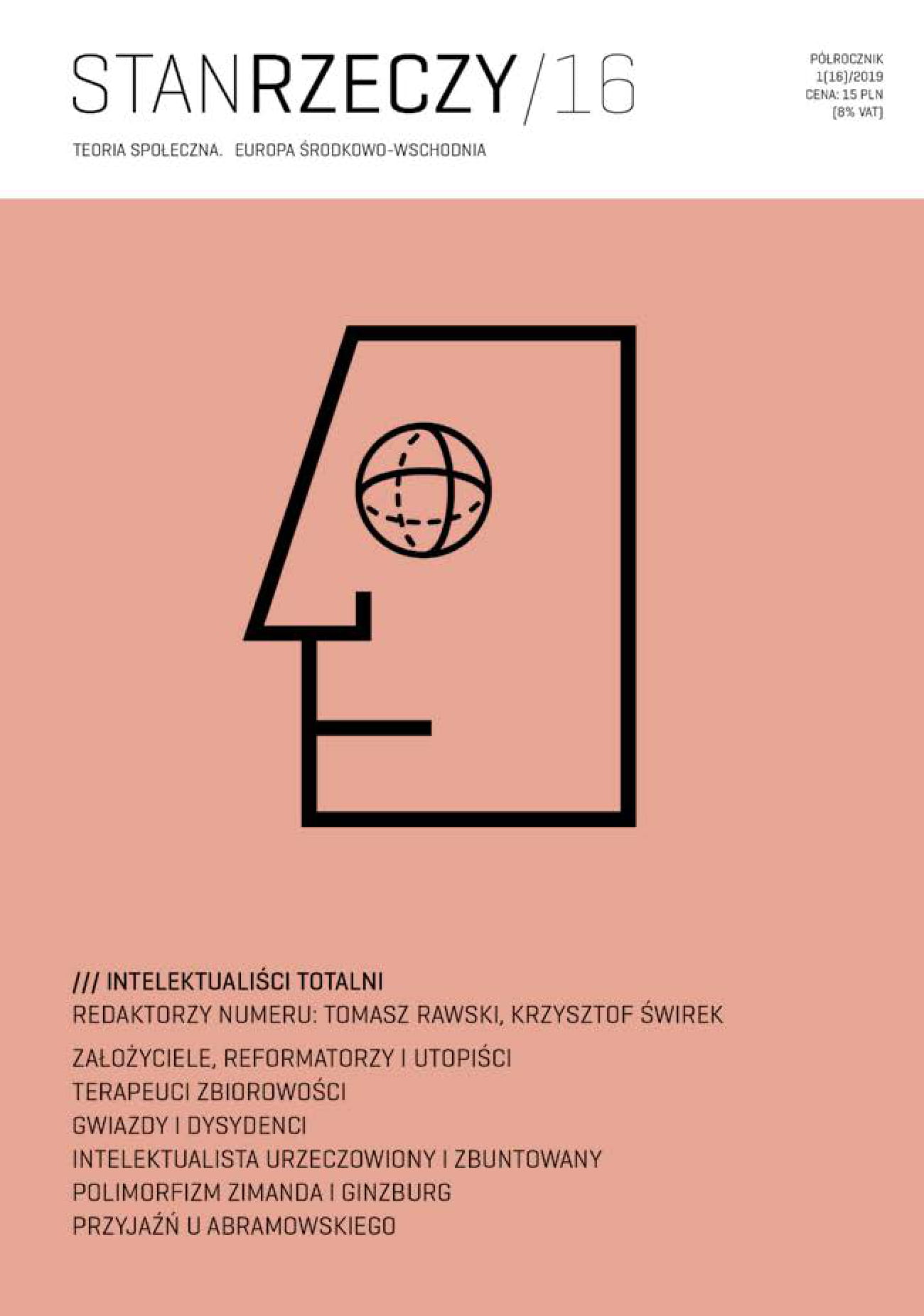Co wiedzieć powinien ten, który powinien wiedzieć? O warunkach możliwości niekonwencjonalnej praktyki naukowej w nowoczesności
What Should Be Known by Those Who Should Know? On the Conditions for Unconventional Academic Practice
Author(s): Stanisław ChankowskiSubject(s): Social Sciences, Sociology, German Idealism, Philosophy of Science, History and theory of sociology, Methodology and research technology, Social Theory
Published by: Wydział Socjologii Uniwersytetu Warszawskiego
Keywords: recognition; universal class; subject supposed to know; civil society; mediation; working totality; university discourse; analyst discourse
Summary/Abstract: The aim of this article is to examine the role of intellectual production and intellectuals in the construction of modern society. The new society, as understood by Hegel, is the fulfillment of the idea of recognition, in which the individual and his attributes exist in so far as they are recognised by other individuals. The same applies to all other social phenomena – their objectivity comes from recognition. This leads to the belief that modern society is founded on knowledge and that social objectivity must be a “known” objectivity. Nevertheless, there are social processes and laws which, even though they remain valid, are not “known” by everyone, because modern society is based on a kind of division of knowledge which corresponds to some extent to the social division of labour. Intellectuals in this scheme have the Lacanian function of a supposed subject of knowledge. Only apparently does this make them dependent on the obligations of the social bond, for which they are a materially privileged class. In fact, the obligation can only be fulfilled if it is betrayed by unconventional academic practices.
Journal: Stan Rzeczy
- Issue Year: 2019
- Issue No: 16
- Page Range: 69-101
- Page Count: 33
- Language: Polish

